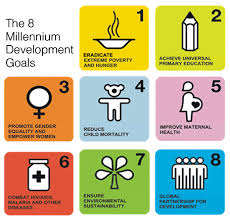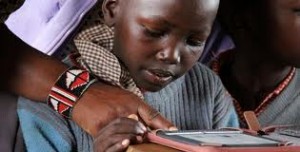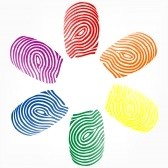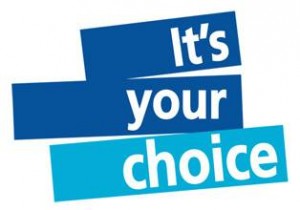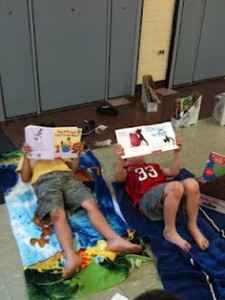Key Takeaways, Learning and Direction
According to the UNESCO/IFLA School Library Manifesto, the mission of a school  library is to “offer learning services, books and resources that enable all members of the school community to become critical thinkers and effective users of information in all formats and media.” With that purpose in mind, a key takeaway for me after our exploration is the exploding possibilities technology offers to realize the above mission. We can differentiate and personalize learning services, dramatically increase access to those services and resources and offer a wide range of diverse resources never before imagined. In many ways, we are only limited by our own creativity. As well, a key learning or, if you will, reminder is that knowledge is meant to be used. As mentioned in the UNESCO/IFLA School Library Manifesto, a main goal is to facilitate “critical thinkers and effective users of information.” As discussed in my post on developing world libraries and mobile devices, libraries have the opportunity to be agents of change. The example provided by the University of Cape Town Library HIV/AIDS video archive shows that offering “resources that enable all members of the school community to become critical thinkers and effective users of information” can change attitudes, policy and actions. In short, it can save lives. How powerful is that? Consequently, my new direction is to consciously focus on the connection between my role as a teacher librarian and change in the world. The acquisition of knowledge and skills is only half the story: how will that knowledge and those skills be used?
library is to “offer learning services, books and resources that enable all members of the school community to become critical thinkers and effective users of information in all formats and media.” With that purpose in mind, a key takeaway for me after our exploration is the exploding possibilities technology offers to realize the above mission. We can differentiate and personalize learning services, dramatically increase access to those services and resources and offer a wide range of diverse resources never before imagined. In many ways, we are only limited by our own creativity. As well, a key learning or, if you will, reminder is that knowledge is meant to be used. As mentioned in the UNESCO/IFLA School Library Manifesto, a main goal is to facilitate “critical thinkers and effective users of information.” As discussed in my post on developing world libraries and mobile devices, libraries have the opportunity to be agents of change. The example provided by the University of Cape Town Library HIV/AIDS video archive shows that offering “resources that enable all members of the school community to become critical thinkers and effective users of information” can change attitudes, policy and actions. In short, it can save lives. How powerful is that? Consequently, my new direction is to consciously focus on the connection between my role as a teacher librarian and change in the world. The acquisition of knowledge and skills is only half the story: how will that knowledge and those skills be used?
New Avenues for Development in My Personal and Professional Practice
 My new avenue for development is inquiry. Specifically, I wish to deepen my understanding of inquiry, both for my own learning but also to enrich the learning of my colleagues and my students. I plan to further explore inquiry through experimentation, mentorship and making connections between my own experiences with inquiry and designing learning for others using inquiry. As discussed in my Fostering Reading Cultures in Schools post, modeling is crucial. We cannot ask other to do what we do not.
My new avenue for development is inquiry. Specifically, I wish to deepen my understanding of inquiry, both for my own learning but also to enrich the learning of my colleagues and my students. I plan to further explore inquiry through experimentation, mentorship and making connections between my own experiences with inquiry and designing learning for others using inquiry. As discussed in my Fostering Reading Cultures in Schools post, modeling is crucial. We cannot ask other to do what we do not.
Moving Forward
As I move forward after this class, the main thing I will take with me from my own  explorations and the explorations of my classmates is the need to have clear and specific learning goals for oneself. We know that this is necessary when designing learning for our students; however, we seem to forget it when it comes to our own learning. This is especially crucial in a time where technology has made vast amounts of knowledge available at the click of a button and innovative pedagogy is widely broadcasted. It is easy to become overwhelmed and lost in the plethora of topics bombarding you. As explored in my Developing your own ICT Skills and Pedagogy post, my biggest challenge is depth over breadth and that requires focusing my personal learning objectives and designing learning opportunities through backwards design for myself.
explorations and the explorations of my classmates is the need to have clear and specific learning goals for oneself. We know that this is necessary when designing learning for our students; however, we seem to forget it when it comes to our own learning. This is especially crucial in a time where technology has made vast amounts of knowledge available at the click of a button and innovative pedagogy is widely broadcasted. It is easy to become overwhelmed and lost in the plethora of topics bombarding you. As explored in my Developing your own ICT Skills and Pedagogy post, my biggest challenge is depth over breadth and that requires focusing my personal learning objectives and designing learning opportunities through backwards design for myself.
Just one topic?
If I had to pick just one topic from Phase 2 that resonated with me, I would choose Supporting Teachers’ ICT Curriculum and Pedagogy: On-going Professional Development. So often we do not apply what we know about learning to ourselves. It is  crucial to honor teachers as learners as well as students and to again recognize the power of modelling. If we treat teachers as learners one way but expect them to treat their students as learners differently, we are deluded. Everything we know about learning applies to teachers as well. Personalization? Teachers are interested in different things at different times. Their learning must allow for authentic inquiry and everything that entails (flexibility, choice, exploration, etc.). Differentiation? Teachers, just like all learners, are unique and learn in different ways and different times. Formative assessment? Specific feedback from facilitators and colleagues is just as crucial to teachers as it is to students. I could go on but hopefully I’ve made my point. Teachers are learners too and deserve the same pedagogy we know works with our students.
crucial to honor teachers as learners as well as students and to again recognize the power of modelling. If we treat teachers as learners one way but expect them to treat their students as learners differently, we are deluded. Everything we know about learning applies to teachers as well. Personalization? Teachers are interested in different things at different times. Their learning must allow for authentic inquiry and everything that entails (flexibility, choice, exploration, etc.). Differentiation? Teachers, just like all learners, are unique and learn in different ways and different times. Formative assessment? Specific feedback from facilitators and colleagues is just as crucial to teachers as it is to students. I could go on but hopefully I’ve made my point. Teachers are learners too and deserve the same pedagogy we know works with our students.


